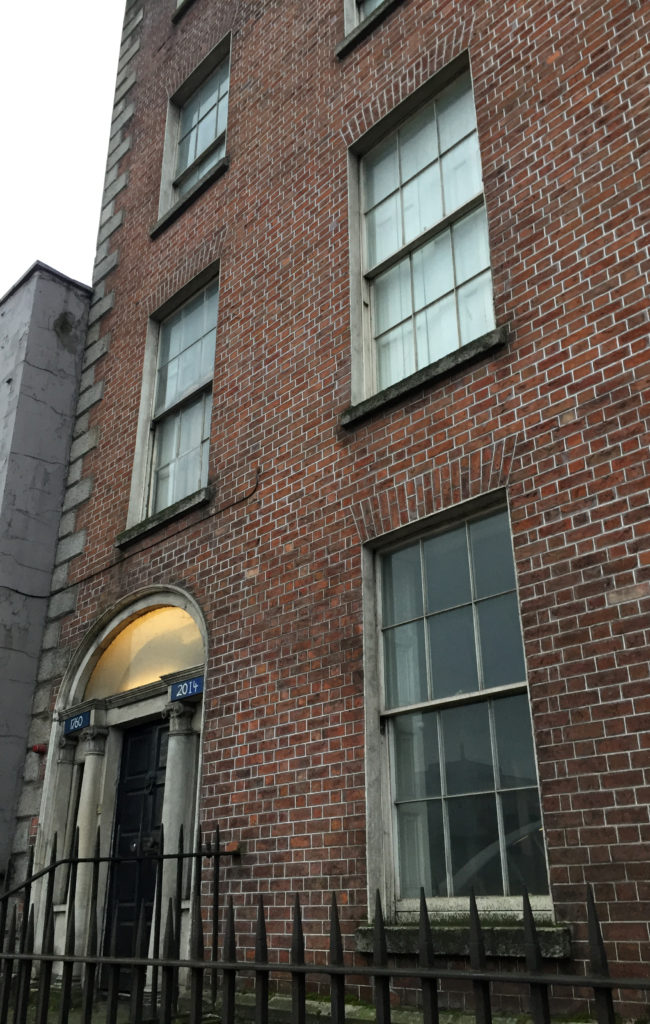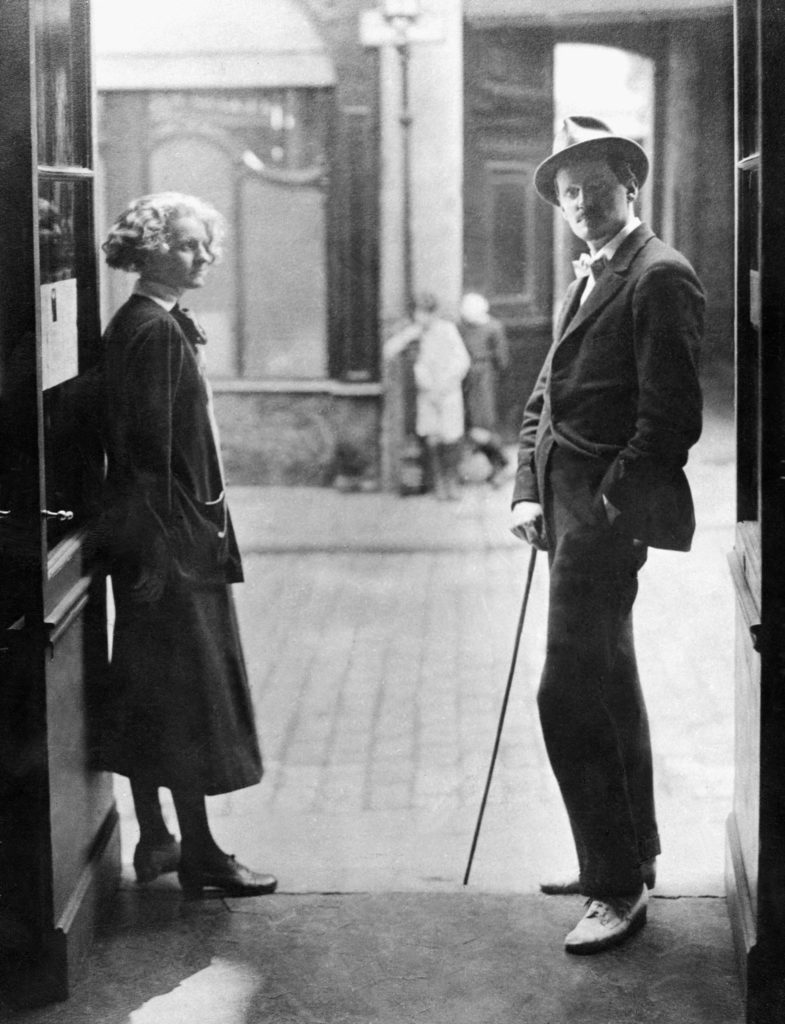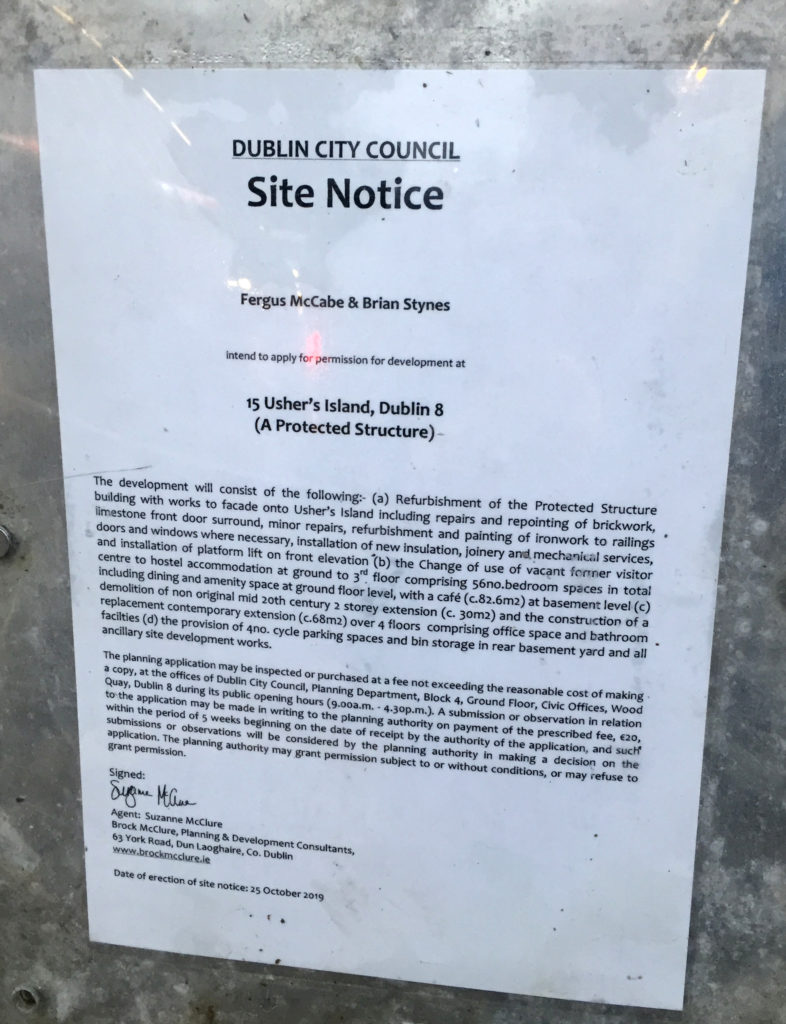WHY is it that in Ireland there seems to be a reluctance to act to save buildings of historical importance from the developers when here in the UK similar properties would be valued and protected for posterity?
With the demolition of the O'Rahilly House in Herbert Park in late September, many feel there is an active aggression from private investors towards sites of historical and literary importance in Dublin, while a degree of passivity is shown on the governmental level.
Dublin is a UNESCO city of literature, but visibly does not support the living structures that helped bestow that honour upon the city.
 The house is the setting for James Joyce's story The Dead, from Dubliners, and was home to his aunts in the 1890s. Minister for Culture Josepha Madigan said plans to convert it into a hostel cannot be contemplated as the structure is an 'objet de theatre'
The house is the setting for James Joyce's story The Dead, from Dubliners, and was home to his aunts in the 1890s. Minister for Culture Josepha Madigan said plans to convert it into a hostel cannot be contemplated as the structure is an 'objet de theatre'Now another property of historical interest, which could be restored and function as a popular tourist attraction in Dublin, is at risk.
This Georgian culturally significant site at 15 Usher’s Island that featured as the setting of James Joyce's short story, The Dead, the final work in Dubliners, his classic book of short stories (first published in 1914) is in danger of becoming a backpacker hostel.
The Dead is considered by many critics as one of the finest short fiction works in English literature.
In the 1890s, Joyce's maternal great-aunts ran a music school in the four-storey house (originally built c. 1775).
Joyce attended festive gatherings at this house, inspiring the Feast of the Epiphany dinner in 'The Dead'.
The story was adapted for film by John Huston, his final film before his death and the film too, with superb performances by Irish actors like Donal McCann, is now considered to be a classic.
The narrative of The Dead (1987) is a moving and pensive examination of mortality, spaces and time and is set in the house at 15, Usher's Island where an annual dinner party is being held.
 Irish author James Joyce, pictured here with Sylvia Beach, features the at-risk house in his book The Dead (Pic: AFP/AFP via Getty Images)
Irish author James Joyce, pictured here with Sylvia Beach, features the at-risk house in his book The Dead (Pic: AFP/AFP via Getty Images)Sadly over the years the house has fallen into disrepair, although serious attempts were made to restore and revitalise it as a place for Joyceans to celebrate the story.
When not in lockdown Joyce enthusiasts from all over the world would flock to the house in droves if it were to be restored as a Joyce heritage museum and it could also provide an educational facility for future generations to be visited by schools to learn more about Ireland’s rich literary history.
A few years ago Brendan Kilty, a Joyce-loving barrister, bought and restored the ground floor with period décor in keeping with the setting of the book.
He hosted literary events and re-enacted the Christmas dinner scene but regrettably it became too much of a burden for him without any grants to support him.
He went bankrupt in 2017 and was forced to sell the property.
The Council and the Office of Public Works had ample opportunity to buy the protected property that Joyce called the “dark gaunt house on Usher’s Island” but woefully failed to protect our heritage and it has now been bought by two property developers, who have planning permission to turn it into a 56-room hostel.
Inevitably this means another part of Dublin history will be tragically lost for ever despite objections from leading cultural figures at home and abroad.
 The house was sold almost two years ago for €650,000. Property investors Fergus McCabe and Brian Stynes are seeking planning permission to turn the protected structure into a 56-bed hostel and cafe. Photo: RollingNews.ie
The house was sold almost two years ago for €650,000. Property investors Fergus McCabe and Brian Stynes are seeking planning permission to turn the protected structure into a 56-bed hostel and cafe. Photo: RollingNews.ieObjections have come from the Department of Culture and Heritage, An Taisce, the National Trust for Ireland, the Irish Georgian Society, the Heritage Council, and from city councillor, Fianna Fail’s Deirdre Conroy, who is also an architectural historian.
Other protesters include a petition, drafted by McCourt and Colm Tóibín and signed in 2019 by many of the world's leading writers, including Salman Rushdie and Edna O'Brien and by the notable figures in Joyce studies, have all failed to move myopic Dublin City Council, who have approved the iconoclastic opportunist development.
According to the Irish Times: “It is time for the government to intervene along with Dublin City Council to block this short-sighted hostel project and to explore ways of acquiring the Joyce house on Usher’s island as a crucial landmark which could, with relative ease, be turned into a museum celebrating Joyce and ‘The Dead’, celebrating Joyce’s Dubliners, a museum interconnected with the National Library, Moli, the Joyce Centre on North Great George’s Street, and Sweeny’s pharmacy. The house has major tourist potential in an area of town that badly needs a lift."
It seems astonishing that this house that belongs to the city and to the Dubliners, who form the heart of Joyce's work, should be at risk when doubtless if it were here in the UK there would be Heritage Lottery and other grants to acquire and support the preservation of such an important historical gem.
Unless attitudes change that seems the way of it in Ireland, where there had to be huge campaigns to save Blake’s Corner in Enyistymon or even the historically significant locations in Moore Street, behind the GPO, at the time of the Centenary of the Rising.
Hopefully the recent campaign and petition to An Bord Pleanala set up by Cáit Murphy, Senior Sophister English Literature and Film Studies student at Trinity , will force the Government in Ireland to intervene before another part of our history is lost forever.

